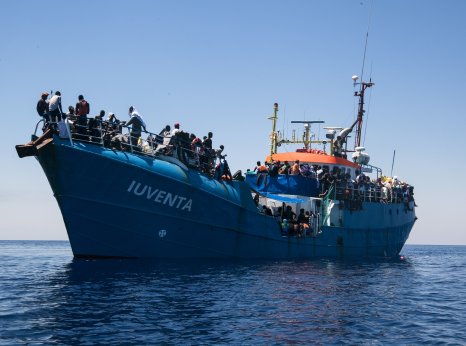Belgium: Asylum Seekers Denied Reception

Since October 2021, the Belgian government has repeatedly failed to provide adequate reception to asylum seekers and refused to increase reception places to meet the needed capacity. In doing so, authorities have left thousands of people who filed for asylum to fend for themselves, with many being forced to sleep on the streets, in makeshift tents or in squats, often in unsafe and unsanitary conditions, in violation of their human rights. The state’s actions and declarations clearly show that asylum seekers’ homelessness in Belgium is not a matter of means and resources but one of political will. The government’s flagrant disregard for legal obligations displays an alarming contempt for the rule of law.
In 2024, Amnesty International spoke to several asylum-seekers impacted by the ongoing crisis, lawyers specialized in immigration law and representatives from civil society organizations working on this issue through advocacy, humanitarian support, and other forms of assistance for people affected. Single racialized male asylum seekers were the focus of the research, as they are disproportionately impacted by the Belgian government’s failure to provide reception.
One of the people interviewed by Amnesty International, “Hassan”, a man from Syria (all names in this UA are pseudonyms to protect the identity and privacy of people interviewed), had to survive for several months on the streets and in makeshift camps. He slept under the stairs of the registration centre situated at Rue de Pacheco 44 in Brussels, on what he ironically defined as a "five-star bed", that he made from a wooden pallet. Even while sleeping rough, “Hassan” continued to offer help to others waiting to start their asylum procedures in Belgium, helping with translations and providing people the information that the state failed to offer. Hassan told Amnesty: “I find myself in the street with zero help, nothing. At Pacheco 44 [the centre where people apply for international protection], the Red Cross is upstairs and ... people sleep [in a place under the stairs to the building], so I made a bed there and slept there. I found a wooden pallet and I had a five-star bed. For [people seeking asylum], it’s a five-star bed, believe me. It protects you from rain.”
“Ahmet” and “Baraa”, both Palestinian men who fled Gaza, arrived in Belgium in September 2024.They lived in a squat which housed six or seven people per room. Ahmet described to Amnesty International how the squat lacked hot water, mattresses, or blankets: “It was cold. […] You can be starving, and no one will know about it. No one will help you.”
Thousands of asylum seekers like “Hassan”, “Ahmet” and “Baraa” are paying a heavy price for the authorities’ wilful inaction. More personal accounts from people interviewed by Amnesty International can be found in Amnesty’s latest publication. Human rights institutions and civil society organizations have offered practical solutions to ensure asylum seekers receive the support they are entitled to. However, their efforts alone cannot be expected to remedy for the state’s failures, and as inaction persists, the negative human rights impact, harm and suffering endured by those affected continue to grow. Under the European Union (EU)’s Reception Conditions Directive (‘RCD’, Art. 19-20) and international law (ICESCR, Art. 11), Belgium has a legal obligation to ensure that asylum seekers on its territory have access to dignified reception conditions, including adequate housing, without discrimination.